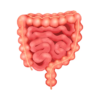Understanding Cushing’s Syndrome: An Ayurvedic Perspective
Understanding Cushing’s Syndrome: An Ayurvedic Perspective, a condition caused by excess cortisol in the body, presents a unique challenge for both patients and healthcare providers. Characterized by symptoms such as weight gain, high blood pressure, and skin changes, this syndrome can significantly impact quality of life. While conventional medicine offers various treatments, Ayurveda, the ancient system of medicine from India, provides a holistic approach that can complement standard care. In this blog, we’ll explore Cushing’s Syndrome from an Ayurvedic perspective, including its causes, symptoms, and potential Ayurvedic remedies.
What is Cushing’s Syndrome?

Cushing’s Syndrome occurs when the body is exposed to high levels of cortisol for extended periods. This can be due to various factors, including:
- Pituitary Adenomas: Benign tumors in the pituitary gland that produce excess adrenocorticotropic hormone (ACTH), leading to increased cortisol production.
- Adrenal Tumors: Tumors in the adrenal glands that secrete cortisol independently of ACTH.
- Ectopic ACTH Syndrome: When tumors outside the pituitary gland produce ACTH.
- Prolonged Use of Corticosteroid Medications: Commonly used for inflammatory conditions, prolonged use can lead to secondary Cushing’s.
Symptoms of Cushing’s Syndrome
The symptoms of Cushing’s Syndrome can vary, but common manifestations include:
- Weight Gain: Particularly around the abdomen and face, often described as a “moon face.”
- Skin Changes: Thinning skin, easy bruising, and the development of purple stretch marks (striae).
- Muscle Weakness: Particularly in the arms and legs.
- Bone Loss: Increased risk of osteoporosis and fractures.
- Psychological Effects: Mood swings, anxiety, and depression.
- Hypertension: High blood pressure is often present.
- Menstrual Irregularities: In women, menstrual cycles may become irregular or cease altogether.
Ayurvedic Perspective on Cushing’s Syndrome
In Ayurveda, health is viewed as a balance between the body, mind, and spirit. The concept of ‘Prakruti’ (individual constitution) and ‘Vikriti’ (current state of health) is central to understanding and treating any condition, including Cushing’s Syndrome. The imbalance in the body can lead to excessive ‘Kapha’ (earth and water elements) and ‘Pitta’ (fire element), resulting in increased heat and dampness in the body.
Causes of Imbalance
- Diet: Overconsumption of heavy, oily, and sweet foods can lead to the accumulation of Kapha, contributing to weight gain and other symptoms.
- Lifestyle: Lack of physical activity, poor sleep, and high-stress levels can aggravate Pitta and Kapha doshas.
- Emotional Factors: Chronic stress and emotional disturbances can also contribute to hormonal imbalances.
- Genetics: Family history may play a role in susceptibility to endocrine disorders.
Ayurvedic Treatment Approaches
Ayurvedic treatment for Cushing’s Syndrome focuses on restoring balance to the doshas and supporting the body’s natural healing processes. The following components are typically emphasized:
- Dietary Adjustments:
- Incorporate Pitta-Pacifying Foods: Include foods that are cooling and light, such as fruits (like pears and apples), leafy greens, and whole grains. Avoid spicy, oily, and processed foods.
- Emphasize Kapha-Pacifying Foods: Focus on light, warm foods that stimulate digestion, such as lentils, legumes, and light soups.
- Herbs and Spices: Include ginger, turmeric, and cumin to enhance digestion and support metabolism.
- Herbal Remedies:
- Ashwagandha (Withania somnifera): Known for its adaptogenic properties, it can help reduce stress and support adrenal health.
- Guggulu (Commiphora mukul): This herb is believed to support metabolism and can help in managing weight.
- Brahmi (Bacopa monnieri): Excellent for mental clarity and reducing anxiety, it supports overall well-being.
- Detoxification (Panchakarma):
- Snehana (Oleation): This involves the application of medicated oils to detoxify the body.
- Virechana (Purgation): This process helps eliminate excess pitta and toxins from the body.
- Basti (Enema): Used to cleanse and rejuvenate the colon, aiding in the elimination of toxins.
- Lifestyle Modifications:
- Regular Exercise: Incorporate yoga and moderate physical activity to enhance metabolism and reduce stress.
- Mindfulness and Meditation: Practices such as yoga and meditation can help manage stress and improve emotional well-being.
- Sleep Hygiene: Establish a regular sleep schedule to promote restorative sleep.
- Stress Management:
- Techniques such as deep breathing, yoga, and mindfulness can help lower cortisol levels and reduce the impact of stress on the body.
Case Studies and Evidence
While comprehensive clinical trials on Ayurvedic treatments for Cushing’s Syndrome are limited, anecdotal evidence and small studies suggest that lifestyle changes, dietary adjustments, and herbal remedies can significantly improve symptoms. Some patients report reduced symptoms of anxiety, weight management, and improved overall well-being after incorporating Ayurvedic practices into their routine.
Conclusion
Cushing’s Syndrome can be a challenging condition to manage, but Ayurveda offers a holistic approach that can complement conventional treatments. By focusing on diet, lifestyle modifications, and herbal remedies, individuals can work toward restoring balance to their body and improving their quality of life. As with any medical condition, it is crucial to work closely with healthcare providers and Ayurvedic practitioners to develop a tailored plan that addresses individual needs.
Incorporating Ayurvedic principles not only aims at alleviating symptoms but also focuses on overall health and well-being. Remember, the journey to health is a marathon, not a sprint; patience and consistency are key. If you or someone you know is dealing with Cushing’s Syndrome, exploring Ayurvedic options may provide valuable support in managing this complex condition.








Leave a reply